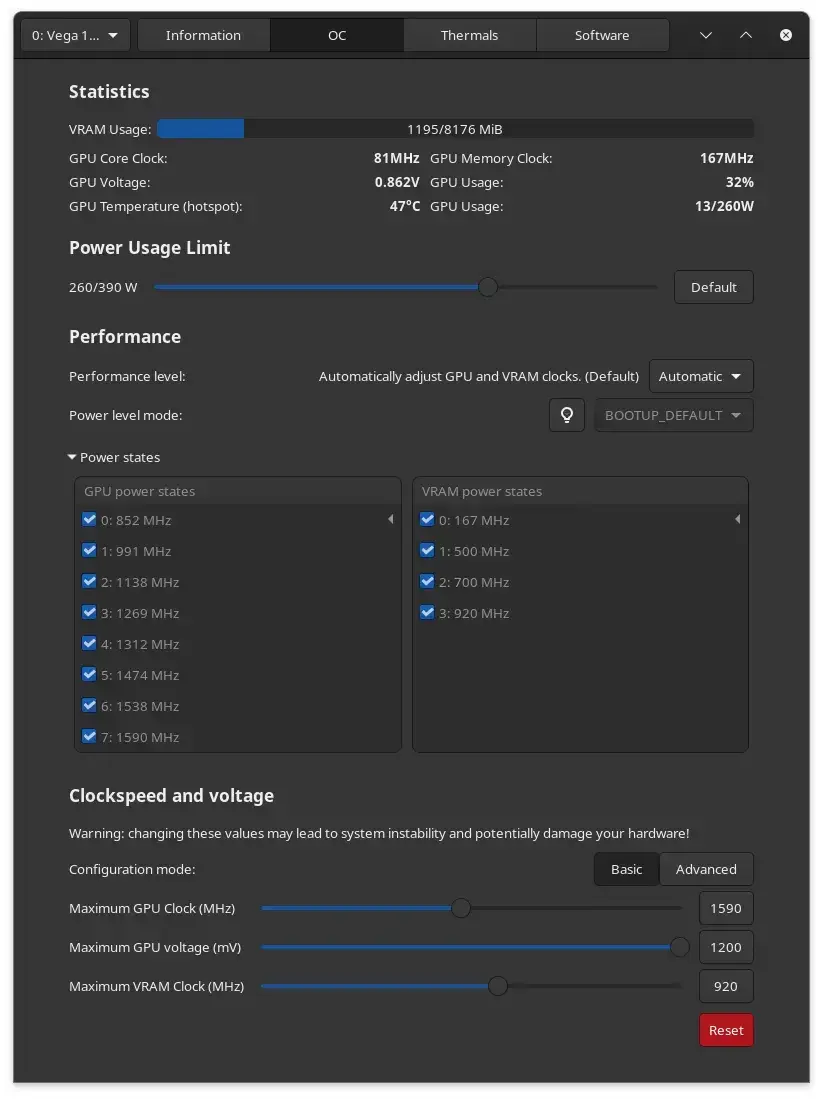LACT 0.5.3 Released For Managing AMD Graphics Cards Under Linux
LACT 0.5.3 Released For Managing AMD Graphics Cards Under Linux


LACT is a graphical tool for AMD Radeon information reporting, GPU overclocking, fan control, power/thermal monitoring, and additional power state configurations.
v0.5.3 adds support for displaying the current graphics clock "current_gfxclk", information around GPU throttling is now reported, improved fan control for older GPUs, improved fan curve point adjustments, many bug fixes, and other enhancements.